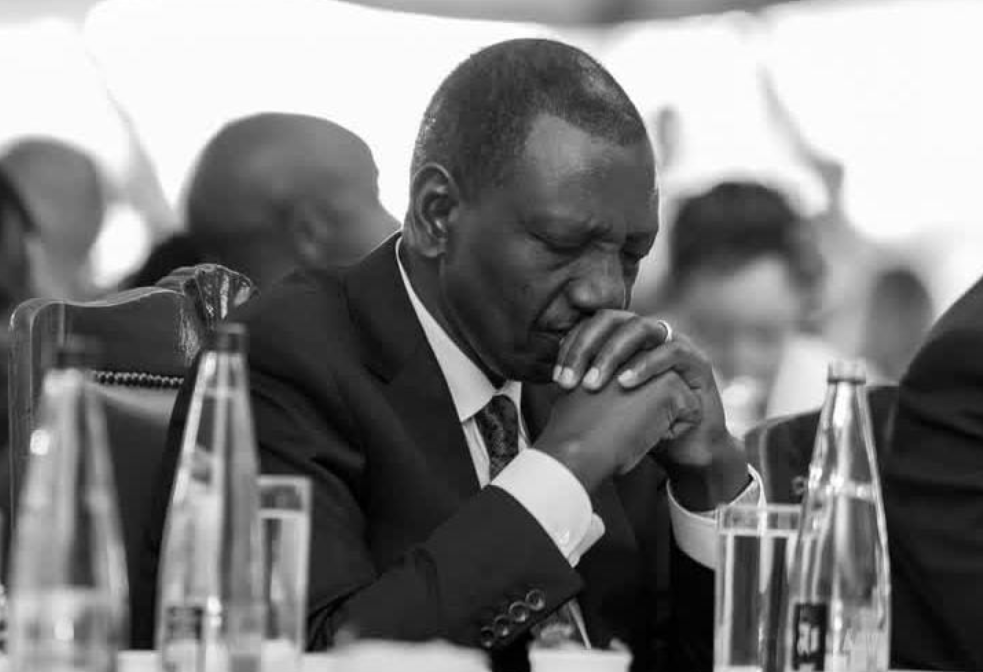Ruto's Government Under Fire: US Human Rights Report Sparks Sanction Fears

The United States government has expressed grave concern over a significant deterioration in Kenya’s human rights record during 2024, citing a range of serious abuses including unlawful killings, enforced disappearances, torture, and increasing restrictions on media freedom. The U.S. Department of State’s latest Country Reports on Human Rights Practices directly implicates President William Ruto’s administration in these abuses, particularly in connection with the youth-led “Gen Z” protests in June and July 2024. These demonstrations initially arose in response to proposed tax hikes in the Finance Bill but quickly escalated into broader anti-government movements after the bill's withdrawal.
Reports from independent Kenyan bodies underscore the severity of the situation. The Kenya National Commission on Human Rights (KNCHR) documented at least 60 protest-related deaths, while the Independent Policing Oversight Authority (IPOA) recorded 50 deaths and 199 injuries, attributing them to excessive force by police. The U.S. report details widespread arbitrary arrests, prolonged detentions without charge, and enforced disappearances. It notes the use of hooded, masked officers in civilian attire, despite a High Court prohibition, with the KNCHR reporting 82 abductions or disappearances since June 2024, and 29 individuals still unaccounted for by year-end. Former detainees reported being threatened by individuals believed to be police, warned against posting protest content online. Human rights NGOs cited routine torture methods, including beatings, stress positions, and electric shocks during interrogations. The report critically states, “Impunity was a serious problem across security agencies,” alleging that the government failed to acknowledge or hold officers accountable for abuses during the Gen Z protests, with rights groups pointing to disciplinary transfers and deliberate obstruction of investigations.
Beyond domestic repression, Washington also highlighted concerns about transnational repression, accusing Kenyan authorities of collaborating in cross-border crackdowns on dissidents. Noteworthy incidents include the forcible return of a registered Ugandan refugee and 36 members of Uganda’s opposition FDC party from Kisumu to Uganda in July 2024 to face terrorism charges. In November, veteran Ugandan opposition figure Kizza Besigye was allegedly abducted in Nairobi by Ugandan agents and driven to Kampala, where he now faces treason charges. While Nairobi initially denied knowledge of Besigye's abduction, Ugandan authorities claimed the operation was coordinated between the two governments.
The U.S. report also spotlighted attacks on press freedom, documenting intimidation and violence against journalists. This included physical assaults during live broadcasts and instances of media self-censorship following government threats. The Media Council of Kenya recorded a minimum of 24 cases of harassment and attacks on journalists during the Gen Z protests, with some reporters facing tear gas attacks and detention by police. A prominent example of this shrinking civic space and media repression is the case of activist and blogger Francis Gaitho, whose arrest and prosecution were specifically highlighted in the 2024 U.S. report as a major human rights violation under the current administration. This inclusion signals escalating international concern and could pave the way for targeted sanctions against implicated officials. The report’s acknowledgment of blogging as a legitimate and impactful medium of information dissemination underscores the growing importance of independent digital voices in upholding democratic freedoms, especially as Gaitho is known for his outspoken government critiques. Analysts warn that if these allegations lead to formal sanctions, Kenya could face severe diplomatic and economic repercussions.
In addition to political repression, the State Department raised concerns regarding poor labor law enforcement, hazardous working conditions, persistent child marriage, and ongoing female genital mutilation in specific communities. Despite acknowledging some governmental steps to investigate and punish abuses, the report concluded that “impunity was a problem at all levels of government,” reinforcing the breadth of human rights challenges facing Kenya.
You may also like...
Mid-Air Terror: Super Eagles' Flight in Dramatic Emergency Landing

The Nigeria Super Eagles delegation experienced a mid-air scare when their chartered flight from Polokwane to Uyo was fo...
High Stakes Showdown: Super Eagles Battle Benin in Must-Win World Cup Qualifier
)
Nigeria's Super Eagles face the Benin Republic's Cheetahs in a crucial 2026 FIFA World Cup qualifier in Uyo. With Benin ...
Massive Update: Jessica Rothe Confirms 'Happy Death Day 3' Will Conclude Tree's Journey

Fans of the "Happy Death Day" franchise can rejoice as star Jessica Rothe confirms the third film is in the works. While...
Sean Penn Joins Lumière Festival in France as Park Circus Expands Warner Classics Library with Gem-Studded Slate

Sean Penn, guest of honor at the Lumière Film Festival in Lyon, delivered an emotional opening speech celebrating Jack N...
South Africa's Poetic Remembrance: The Lasting Echo of Sarah Baartman

A new documentary delves into the life of Sarah Baartman, moving beyond exploitation to highlight her depth, multilingua...
Celebrity Shockwave: Katie Price's New Look Ignites Public Worry!

Katie Price has sparked alarm among fans with a recent Instagram post showcasing dramatic weight loss, fueling fears abo...
Strictly Stunner: Shocking Spoiler Leaves Fans Breathless and Baffled!

This week's Strictly Come Dancing saw the second elimination results prematurely leaked online, much to the dismay of fa...
Madame Tussauds London's Quirky New Exhibit: A Wax Sausage Roll Joins the Stars

Madame Tussauds London has unveiled its first-ever food item wax figure: a Greggs sausage roll. This unique addition cel...

